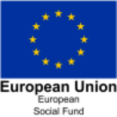BSc (Hons) Sport, Health and Exercise Science
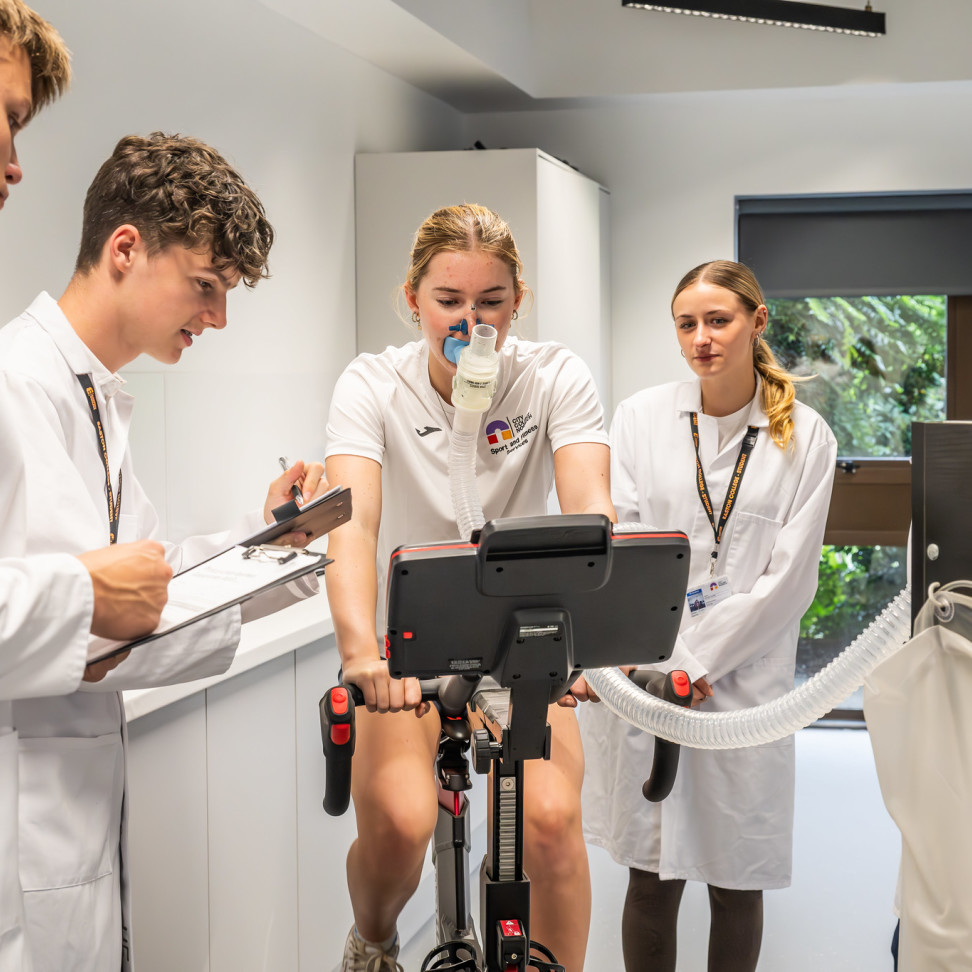
This degree course is a challenging blend of academic and vocational/professional study that will encourage you to develop and become a reflective lifelong learner by providing a broad, analytical and integrated study of sport, health and exercise sciences.
This programme is subject to validation / revalidation by UEA, ready to accept new entrants from September 2026. Therefore, for next year there may be some changes to this advertised course content following this process.
- Level
- 6
- Entry Point
- Sep 2026
- Duration
- Full Time, 3 years
- Venue
- Easton College campus
- UCAS Course Code
- C603
Reasons to study
this course
The Sport, Health and Exercise Science degree aims to support you to enhance your own performance in pursuit of your chosen career through reflection and improvement.
Successful completion can enable you to progress to postgraduate routes and/or graduate level employment. The course offers a progression route from vocational Level 3 provision (BTEC, VCTC and Access courses to name a few) and also academic Level 3 qualifications such as A Levels. Furthermore, it supports mature students with the appropriate sport and exercise experience and suitable academic qualifications to study.
Depending on the pathway taken in the second year of study, you will achieve one of the following awards:
- BSc (Hons) Sport, Health and Exercise Science
- BSc (Hons) Sport, Health and Exercise Science (Health, Fitness, Strength and Conditioning)
- BSc (Hons) Sport, Health and Exercise Science (Coaching and Development)
This course provides an intellectually stimulating programme of work that will develop you as a reflective, independent and flexible learner within the sport, health and exercise sector. It will provide you with opportunities to embark on a range of organisational career pathways where knowledge and experience of sport, health and exercise science is important.
It provides a schedule of learning that will develop your transferable skills to respond to a varied job market, including; communication, numerical, IT, independent research, team working and problem solving as well as interpersonal and research skills specific to the sector.

Ben King - Course Leader BSc (Hons) Sport, Health and Exercise Science
Hello, I'm Ben and I hold a Master’s degree in Higher Education Practice, a BSc (Hons) in Sport Coaching, Performance Psychology and Sustainable Design, and a Postgraduate Certificate in Higher Education and Certificate in Education teaching qualifications.
I have worked in the football industry as a development coach for several years, and continue to work with semi-professional football clubs alongside my role leading this Sport, Health and Exercise Science degree. I am passionate about making sure the course supports industry needs, as well as supporting the progression of our students. I work alongside module leaders who have a diverse range of skills in the sports science sector. If you have any specific questions about the course, please get in touch!
Contact course leaderWhere will this
course take you?
After completing the course, previous students have progressed onto a range of routes including:
- Teacher training qualifications
- Leisure assistants and managers
- Sports therapists
- Sports scientists
- Video analysts
- Sports coaching
- Working for the NHS
- Starting their own business as a personal trainer
Or progressing to other degrees such as:
- PGCE Physical Education
- MSc Physiotherapy
- MSc Sport Science/ Injury Prevention/ Sports Performance/ Strength and Conditioning/ Sports Psychology
Student stories
Course structure
This course is studied full time over three years. The programme is delivered over two days a week - 30 teaching weeks per year.
Sports, Health and Exercise pathway
Level 4 modules
Professional and Academic Skills Core
This module is designed to enable you to identify and develop skills for successful higher education study as well as transferable employability skills. It will also develop reflective analytical thinking.
Assessment:
Group Presentation (50%)
Journal (50%)
Anatomy and Human Movement Compulsory
The module is designed to give you knowledge of the function in relation to the structure of the human body in sport and exercise. It will aid further understanding in higher and subsequent modules to enable a better comprehension of anatomy of human movement and performance. You will learn the key theoretical concepts and principles of biomechanics and how to apply them to human movement.
Assessment:
Exam (75%)
Practical (70%)
Health and Fitness Compulsory
The module aims to introduce you to fundamental principles, methods and practical techniques associated with health, fitness, strength and conditioning through a range of lectures, workshops and practicals.
Assessment:
Presentation (40%)
Exam (60%)
Sports Therapy Core
The module is designed to give you knowledge of the function in relation to the structure and anatomy of the human body in sport and exercise. It will introduce skills in identifying risk factors in sports performance for injury and minimising the potential for occurrence. The treatment of common sports injuries is also examined.
Assessment:
Case Study (70%)
Massage Practical and Questioning (30%)
Sport and Exercise Physiology Compulsory
This module examines the essentials of exercise physiology, including concepts in energy, respiration, circulation, nervous control, endocrine secretions and muscular activity. Exercise physiology will be studied in a pre-exercise, exercise and post-exercise style.
Assessment:
Case Study (100%)
Community Coaching and Development Compulsory
This module will enable you to develop your understanding of the coaching process and to develop your coaching skills in both theoretical and practical situations. A coaching philosophy will be developed.
Assessment:
Group Presentation (50%)
Reflective Commentary (50%)
Level 5 modules
Coaching and Mentoring Compulsory
This module will enable you to further develop your knowledge, understanding and the practical application of the coaching process from Level 4. You will develop short term and long term coaching plans and further develop and refine coaching methods to improve performance of individuals/teams.
Assessment:
Practical Observation Reflective Commentary (60%)
Mentor Feedback (40%)
Health Promotion, Physical Activity and Behaviour Change Compulsory
The module will discuss current health policies in the UK associated with lifestyle choices and the barriers that are faced in their application. You will begin to explore and understand the responsibilities of practitioners who have a role in delivering physical activity and health improvement interventions.
Assessment:
Exam (50%)
Group Presentation (50%)
Nutrition for Health, Fitness and Performance Compulsory
You will analyse a range of individual diets and be able to make recommendation for change to improve health and support fitness. Nutrition in the context of sports performance will be discussed including a review of the current science behind the use of supplements to improve performance.
Assessment:
Investigative Report (50%)
Exam (50%)
Sport, Health and Exercise Research Skills Core
The module will develop an appreciation of qualitative and quantitative methodology, research methods and critical thinking skills appropriate to the subject area. This module will provide the opportunity for you to focus on practice-based research evaluation skills
Assessment:
Open Book Exam (70%)
Project (30%)
Sport and Exercise Psychology Compulsory
You will develop your understanding of the importance of a solid theoretical approach to all applied work and consider the significance of providing psychological support beyond the traditional interventions.
Assessment:
Case Study (100%)
Exercise Physiology and Laboratory Techniques (Health and Exercise Science Pathway) Compulsory
You will explore and analyse the human aerobic and anaerobic capacities in terms of measured physiological responses to exercise stressors. You will witness how the body adapts to acute exercise stressors and will learn how humans adapt when exposed to chronic exercise stressors.
Assessment:
Practical Exam (50%)
Laboratory Report (50%)
Strength and Conditioning Methods (Fitness, Strength and Conditioning Pathway) Compulsory
The module aims to build upon the fundamental principles, methods and practical techniques introduced in strength and conditioning method one through a range of lectures, workshops and practical. The module will give you the practical skills that will enable the planning and delivery of safe and effective medium-term exercise programmes in a variety of settings. The focus is on developing intermediate level practical skills and theoretical knowledge of a coach, fitness instructor and personal trainer in the strength, conditioning and fitness industry whilst exploring, practising and evaluating different training systems.
Assessment:
Video Log (50%)
Practical Assessment (50%)
Sports Development and Management (Coaching and Development Pathway) Compulsory
This module determines the skills necessary for effective management within the sport and leisure industry, including marketing, people management and financial, economic, legal and ethical principles. You will develop a critical understanding of what the sports development and sports management environment looks like, the skills required to succeed and types of challenges that exist.
Assessment:
Exam (50%)
Report (50%)
Level 6 modules
Research Project (Dissertation) Core
This module will enable you to demonstrate that you can take substantial responsibility for your own learning. It does this by offering you the opportunity to choose, undertake and report upon a major investigation of a selected topic relevant to the sport, health and exercise industry. By challenging you to manage your own learning, the research project makes a major contribution to the honours classification process.
Assessment:
Literature Review and Methodology (30%)
Presentation of Results (10%)
Research Paper (60%)
Applied Professional Practice Compulsory
The purpose of this module is to apply a range of professional techniques learned from previous modules at Level 4 and 5. You will be required to work closely with an individual to assess their strength and areas for improvement. You will then need to prepare and deliver a training program to effect positive change.
Assessment:
Case Study (100%)
Performance Analysis Compulsory
Performance analysis is firmly rooted at elite playing standards and evidence derived from analyses provides an opportunity to critically appraise performance. This module enables you to understand the processes involved in analysing sports performance as well as the application of theory to practice.
Assessment:
Essay (50%)
Presentation (50%)
Sports Events and Entrepreneurship Compulsory
In the process of proposing, planning, implementing, reviewing and evaluating an actual event, you will need to integrate market research, marketing, human resource management, leadership, health and safety issues, security, logistical and financial management in an appropriate way. The emphasis is on the processes that surround the actual event itself.
Assessment:
Group Presentation (50%)
Deliver Event and Evaluate (50%)
Exercise for Specific Populations (Health and Exercise Science and Fitness, Strength and Conditioning Pathway) Compulsory
This unit is intended to examine the importance of physical activity for optimal health and longevity across a life-span. The impact of physical activity is examined across a wide variety of chronic diseases, considering non-pharmacological interventions. The application of exercise programmes are to be prescribed and modified relative to specific populations.
Assessment:
Exam (50%)
Essay (50%)
Coaching in a Performance Setting (Coaching and Development Pathway) Compulsory
This unit is designed for those who are in working in or hope to work within a performance setting. It will critically analyse issues within coaching performance athletes as well as being part of a multidisciplinary team; as such it will be of interest to coaches or sports scientists who wish to develop the skills necessary to work in an integrated performance setting.
Assessment:
Case Study (100%)
Course details
Assessment methods
You will be assessed through a variety of methods including reports, projects, a portfolio, group presentations, individual presentations, essay/ discussion papers, practical sessions, case studies, examination questions, closed book exams and open book exams.
Awarded by
This course is awarded by the University of East Anglia and regulated by The Office for Students
Entry requirements
UCAS points
Our typical offer is 80 UCAS tariff points from A Levels or equivalent
GCSEs
A minimum of GCSE maths, English and science (preferred) grade 4/C or above.
Scottish Highers
UCAS points from Scottish Highers or Advanced Levels are accepted
BTEC
UCAS tariff points from BTEC or City and Guilds diplomas are accepted
We will accept applications from students who have passed, or are predicted to gain a pass grade in:
Pearson BTEC Level 3 Sport Coaching and Development Extended Diploma
Pearson BTEC Level 3 Sport Performance and Excellence Extended Diploma
Pearson BTEC Level 3 Sport and Exercise Science Extended Diploma
Pearson BTEC Level 3 Fitness Services in Sport
Open University
Open University credits in lieu of A Levels
HE Diplomas and T Levels
Access to HE Diplomas and T Levels are accepted. Subjects with a scientific element are desirable.
Contextualised Offer
You may also be eligible for a contextualised offer for this programme, please see our Contextualised Offer page for further details and to check your eligibility.
Mature applicants are welcome if you can demonstrate appropriate qualifications and suitable experience.
Applications from students whose first language is not English are welcome. For International students we require evidence of proficiency in - English (including writing, speaking, listening and reading); the required minimum is IELTS Academic (SELT) 6.0 overall (minimum 5.5 in all components). Please contact the Admissions Team for advice and guidance.
Course fees
£9,535 per year for UK students.
£15,052 per year for international students (students from outside of the UK).
Other course costs
You will be required to purchase some sports kit, with the minimum requirement being to have at least two sports tops (cost of around £15 each). You may decide to purchase additional items of kit up to a cost of approximately £150.
We were awarded a TEF Silver rating overall in 2023, achieving this for both student experience and student outcomes.
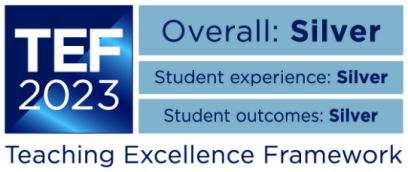
Search courses
Search CCN HE



